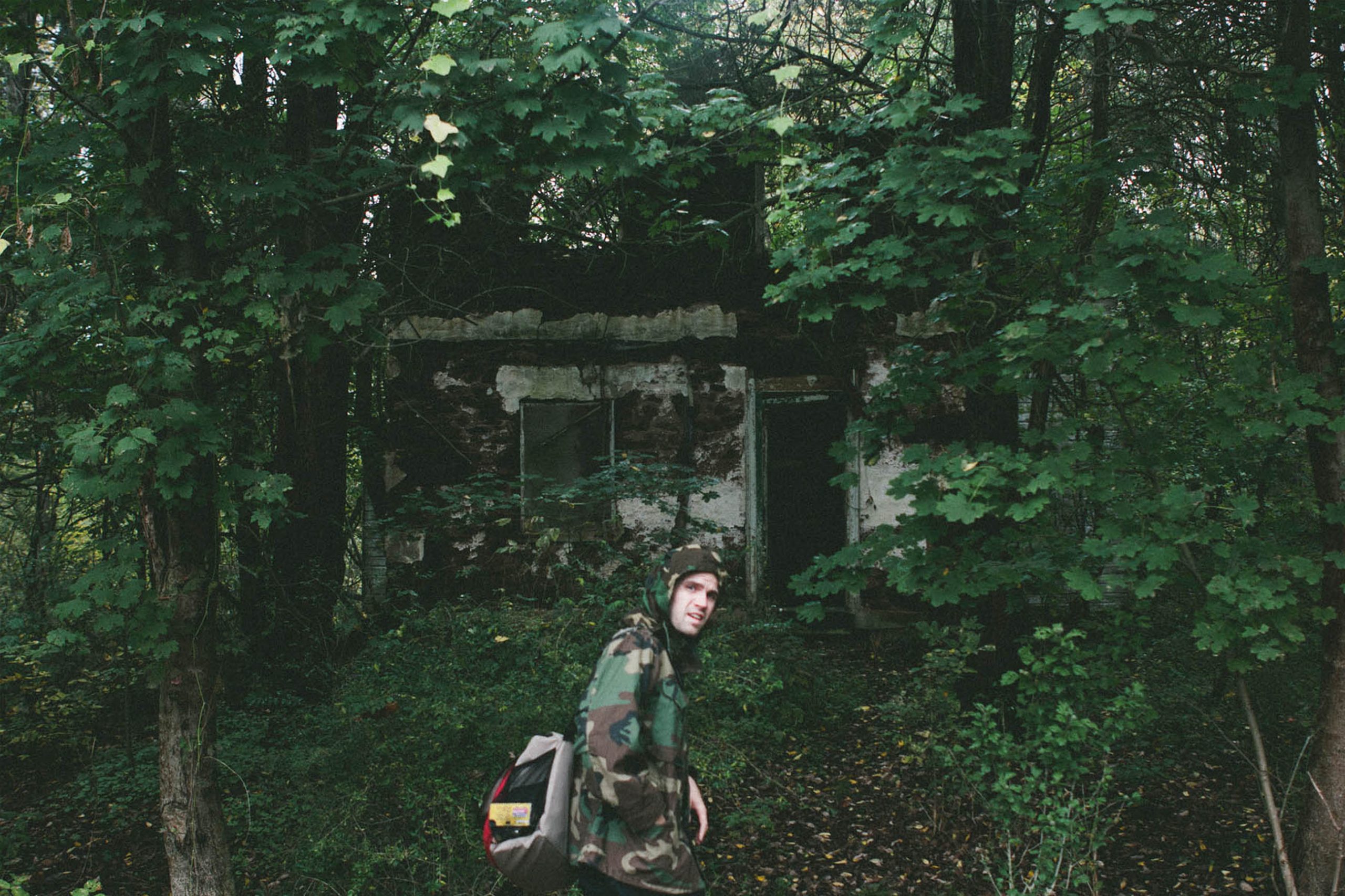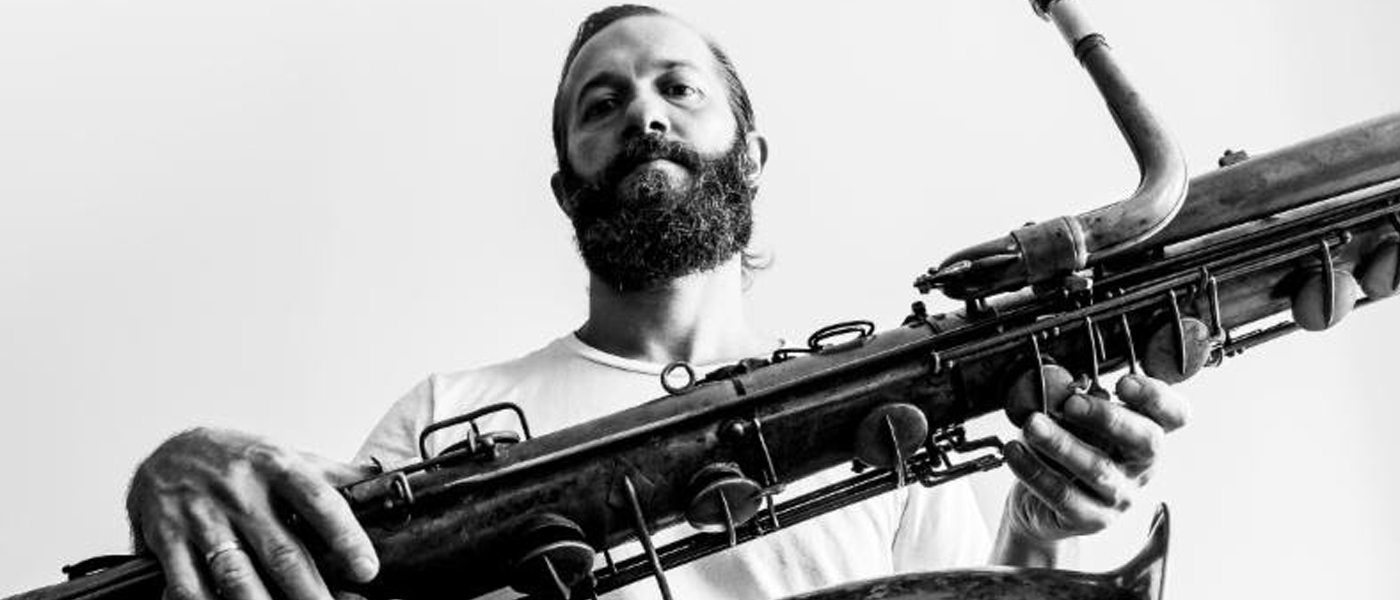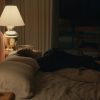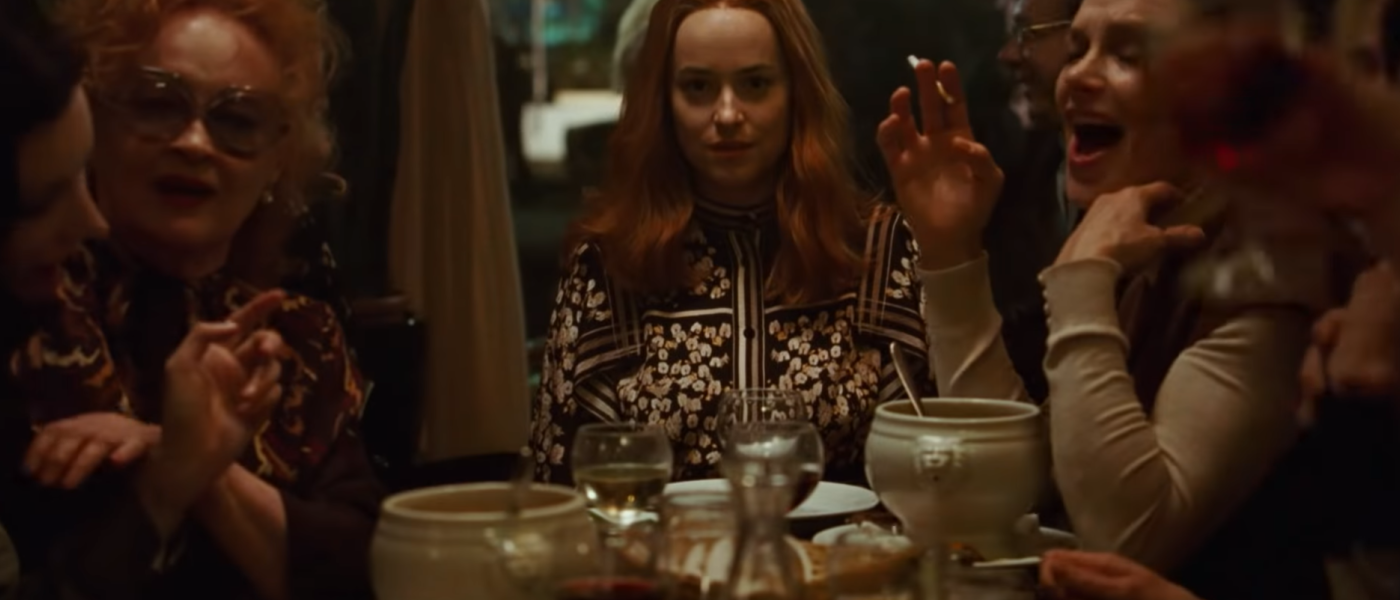Furthering their excellent track record among the horror community, A24 released their latest film, Hereditary, on June 8. While the film is nearly impossible to talk about without offering up spoilers, it is certain to be the most tense film of the year. A driving force behind the visceral emotions to which viewers are subjected is an artfully created score by composer and musician Colin Stetson. Previously working on the soundtracks for Arrival and 12 Years A Slave, playing saxophone with Arcade Fire and Bon Iver (and many more), and performing and recording his own solo material, Stetson has made a name for himself in the industry. We were recently fortunate enough to have Stetson take time out of his busy schedule to talk to us. Check out the spoiler-free conversation below.
Maggie Iken: How did you get brought on for Hereditary? How did that whole process start?
Colin Stetson: It started a few years ago. Ari [Aster, director] had been writing the script largely listening to music of mine, and he reached out and we had a call at some point. I think it was probably about three years ago. He sent me the script and I read it, and the combination of talking to him and seeing where he was coming from with the film and what his intentions were, and then reading it and seeing how unique it was, and the shape and the story and the concept. I signed on at that point, gave him the go-ahead and we just went from there. He checked in every six months to let me know where they were in the development process and eventually it all got going.
At what point did you start writing music for it? And what was the timing of that with the film?
I started writing music and recording it in either December 2016 or January 2017. I started scoring just on the script. The best thing about this whole process was that we didn’t have to go through the normal pains of a composer coming in at the last minute after the temp [music] has been in on an edit for months, sometimes as much as a year. So that can be pretty tricky sometimes when people get really settled onto certain sounds. I got to read the script, spend a lot of time with it, and talk to Ari about what his designs were for it, and then start to score off of that, and off of location shots, character profiles, all of these things that started to trickle in. Bits of dailies, principal photography. It was a long, gradual process which resulted in a very minimalist, gradually unfolding piece of music.
When during the whole process did you have your final score?
January 12th, right before it premiered at Sundance. There were edits being done to the film all the way up until that final date, so I was taking things and ratcheting them here so that they all fit and were musically consistent. It was down to the wire.
For the instrumentation, I was reading that there was a lot of saxophone and clarinet, some horn here and there. I know you play saxophone–do you play all of the instruments or do you enlist other musicians?
For most of the scores I do, I play everything. For this one, I played everything.
What was your musical upbringing? What is your history with music?
I started playing alto when I was 9. Not a musical family, but musically inclined and supportive. I had always been enamored with the horn and wanted to play, so I started playing at 9. I started studying privately when I was 15 and things just really blew up from there. I branched out to soprano, baritone, and tenor when I was in high school, started playing flute when I was 15 or 16, started playing clarinet when I was 18, and then gradually picked things up along the way. Even now I’m always getting new instruments new sounds, branching out and enriching the arsenal that I’m working with here.
What’s an instrument that you don’t have in your collection that you would really like to have?
I am waiting for probably a year and a half or so for an instrument to be built for me. It’s a form of contrabass saxophone called a tubax that was invented by a guy in Munich named Benedikt Eppelsheim. There’s a whole host of obscure string instruments I’m trying to track down. I’m always looking for new things. Strings are one of those areas where I don’t play much if at all, and would like to start to remedy that a bit although I have no designs to actually become a very fit player, but to be able to do basic things. I do actually play the most rudimentary, broke-ass viola throughout the score of Hereditary so attentive listeners will hear that.
How is it different to compose music that is at the forefront (like solo material) versus kind of being background music for film?
It’s supportive, and that’s it’s role. It’s still music, it still utilizes all of the same sounds. It’s the crafting of sound to elicit emotional response. At its core, you’re dealing with the same set of variables. I liken it more to the process when I work with songwriters where it’s not my composition, it’s me coming in, in a service to someone else’s vision. You start with their vision, their intentions, and their desires, and you use your own intuition and craft to best facilitate all of that. I always try to do things as economical as possible and not really infuse something or imbue a song, or in this case a score, with something it doesn’t need, with unnecessary fat. What is the minimum, what is exactly what is necessary here–no more no less–and just trying to whittle it down to that. For Hereditary, it was very much a study of that process. Trying to see just how little I could do, and how gradually I could get it to unfold, and blur the lines between sound design and music and really be as supportive of a player and a character as I could be so as to not draw attention to it. It was uncanny but the way Ari crafted this film, every time I did something more conventional, it popped out and it tore you away from the emotional immediacy of that family’s experience and the relationship between them all, and in particular between Annie and Peter. It really a long drawn out study in minimalism.
I noticed at points that I was sitting on the edge of my seat and I felt like I was on the verge of a panic attack, and almost always the music was the source of that building tension. Obviously the film is intense, and the music is really truly adding to that. The other piece of that that I found really interesting was the use of stark silence. Did you have any role in choosing where the silence was in relation to your music or was that a discussion with someone else?
A lot of it was already established, Ari had very specific things that he wanted to do, but the manner leading up to them was under debate. We got to finish concepts collaboratively from scene to scene, there were a few things which were up for debate in the beginning where they would have silence or would be set to music. Mostly I opted for the silence because it seemed like the better and more effective and more daring and more unconventional move. The scene around the dinner table, keeping that entirely [devoid of music], the tension of that honest conflict between these family members, that’s how I view the whole film. I know yes, that it’s a “horror film,” but at its core it isn’t that. At its core, it’s a brilliant, devastating study in grief and loss and an honest portrayal, laid bare, of this family’s raw emotions. Perhaps in an era of so many of us becoming more and more conflict-averse in our daily life and our interactions, it’s something that I feel plays even more poinently in that context. It’s something that plays with some really, really raw emotional and psychological landscapes. Leaving certain things bare was the best way forward. That being said, the score is something like 85 minutes worth of music, so it’s still a lot of sound. What I tried to do was to make the heart of the score play as an extension of silence, almost as though you’re turning up the volume on the absence of sound.
What were your inspirations for the score?
Going back to what I just said, I think first and foremost keying off of what Ari wanted, which was very minimal direction. Generally speaking, he said he wanted it to feel evil and to embody the concept that the score was to play out as if it was a character. I can’t get too far into that without getting into spoilers. I started from that foundation; rather than themes for different characters that would develop, I played the score as though it was a character that had relationships with each of the characters in the film and how it was manipulating them or being manipulated by them.
In terms of inspirations outside of that core, the first thing I thought of was the amplification of silence. The times when I think irrational fear is most palpable is those times, say, it’s late at night, you’re in a very, very quiet, most likely dark space. For me, it was being out in the woods. My studio and house is out in a lot of mountainous forests. You go out in the night and you walk through the woods, the amplification of the minutia in that kind of silent situation, all of your senses are deadened and you don’t have your vision anymore and all of the aural is turned all the way up. That can just play up fear like you didn’t know you had the capacity for it, and it’s irrational because there’s nothing there to be afraid of. It keys into something instinctual. I was really just trying to play off of that and to work with that subtlety.
Beyond that, there’s a lot of different sound sources and styles of music here and there that I drew from. In terms of straight film score inspiration–I always go back to it but it is the truest answer to that question–but Jóhann Jóhannsson’s Prisoners score has been such an integral part of my education as a film composer. It is one of those things that is truly lean and it does everything it needs to do and nothing more. It’s beautiful, tense, lovely. I think for me, that movie shares a lot of DNA with Ari’s film so I didn’t want Hereditary to play out like a horror film. I wanted it to play out more like a very minimal and tense drama.
For the score, did you use written notation at all?
No, because I’m playing everything, I rarely write everything out. I take a lot of audio notes, so throughout the day if i’m composing or doing generational stuff and I’m playing with a certain instrument trying to find sounds or themes, I’ll be recording. Everytime I land on something, I’ll make sure it’s added to the pile. Daily, I go through everything and see what’s there to make sure I’m not letting anything fall by the wayside. I take a lot of notes that way but I don’t write things out because it already takes an enormous amount of time to do everything. The few times when I have people in to do part-playing, like string players or something, I’ll write things out for them. For myself, it’s much more efficient timewise to just do it.
We had talked about the possibility of doing a live rendition of the score with the film after it came out, but it’s just… I went through the score and realized, what a nightmare [laughs]. There’s cues where the ensemble, even if you’re doing a reduction, you get six brass players together, another four people to strap throat mics on and do weird vocals and you’d have to map the exact pace of a really slow bend that only goes up a fifth over a minute and a half, and then a team of ten clarinetists. It would be ridiculous.
Do you have future projects you can talk about?
Right now, I’m completely swamped with work for a TV show I’m doing with Hulu called “The First.” It’s a show by the creators of “House of Cards.” It’s for the next two months. I have a couple other projects, but I’m not sure if I can talk about the other ones. Beyond that, a solo record is in the works and it’ll be coming next year but it’s not finished yet. I’m finding the time between all of the other things to get that assembled.
Is there a director out there that you would really like to work with?
There’s so many. Terrence Malick is my favorite director of all time, he’s responsible for my favorite films, and in the way that Tom Waits was responsible for the musical DNA that is me now, growing up with his music is so formative. I think Malick is that in film for me.
Do you have advice for people who would want to get into cinematic composing?
The same advice for anything: if you want to do it, just immerse yourself in it. Know the medium, immerse yourself with as much of it that you enjoy and that you are honestly moved by so that you start to embody it.
In terms of the actual mechanics of working the job, I would say do your damnedest to ensure–and this is a tall order–but do whatever you can whenever you can to work around the idea of temp music or to supply the temp music yourself ahead of time. It’s not always possible, and it’s almost never possible, but when it is, it makes a world of difference. The whole process of doing that, making that be the preface of a composer coming into a project, all of these disparate pieces from different sound sources be the map for them to try to create something that has a cohesive character and momentum and story arc, it’s such a terrible model for actually getting done what you’re supposed to be getting done. So whenever you can avoid that, avoid it.
Are you a cat person or a dog person?
The only dog I ever lived with was a Siberian Husky named Orson who was stark white with a little stripe of red down his back. He used to jump over mud puddles and the first thing he’d do when he came home was he’d sit at the top of the stairs and pick all of the dirt out of his nails with his teeth. So we got along swimmingly. I think that I’m a dog-that-acts-like-a-cat person, because when we wanted to bro down it was full dog time, but at the same time, when we got home, he want to be alone and so did I.




